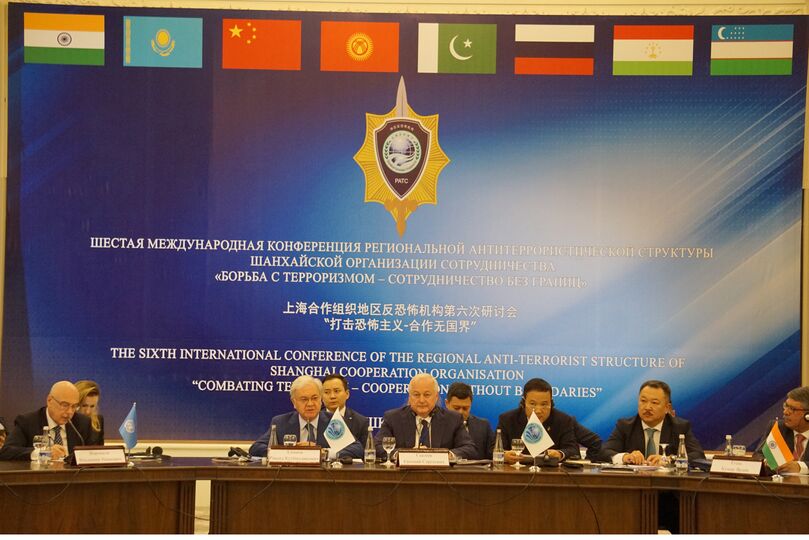A conference entitled, "Combating terrorism: Cooperation without borders," hosted by the SCO Regional Anti-Terrorist Structure opened in Tashkent on 31 October.
"The SCO member states work consistently and systematically in almost all areas to fight terrorism more effectively. Cooperation in eliminating the ‘three scourges', terrorism, separatism and extremism, will always be a top priority for the SCO and its anti-terrorist structure. From day one, this has been a well-planned and comprehensive effort," the SCO Secretary-General said speaking before conference participants.
Mr Alimov noted that a year ago in Astana, the heads of the SCO member states, in their Statement on Joint Counteraction to International Terrorism, expressed particular concern about the growing threats to global security related to the increased activities of terrorist organisations.
"There are reasons for this," he said. "According to international experts, there were 1,550 terrorist attacks worldwide in the first nine months of 2018, more than five terrorist attacks a day. Each of these inhuman acts, which cannot be justified, led to the loss of innocent lives, broken lives and destroyed buildings and structures."
With threats to security increasing worldwide and the stepped-up activities of terrorist and extremist organisations, one of the most vulnerable groups, youth, is increasingly exposed to their targeted influence.
"In the SCO member states, where 650 million young men and women aged 15 to 24 live, there is a consensus that manipulating the minds of young people and involving them in terrorist and extremist activities are unacceptable," the SCO Secretary-General said and went on to describe ongoing joint efforts to develop the ability in young people to resist radicalisation and to develop immunity against extremism in all its forms.
In particular, Mr Alimov elaborated on the joint Address to the Youth and the Action Programme for Practical Implementation, as well as on holding an Assembly of youth representatives from the SCO countries, who will meet in the Chinese city of Dongfang on 9 November and demonstrate united opposition to terrorism and extremism for the young generation.
"Our common goal is to protect young men and women from ill-considered directions and not let them get trapped bythe ideological nets cast by religious and extremist organisations," the SCO Secretary-General said.
Mr Alimov pointed out that the SCO would consistently and steadfastly expand antiterrorist cooperation with the UN and its specialised agencies, in particular, the Counter-Terrorism Office and other bodies, as well as international organisations.
Mr Alimov pointed out that the SCO would consistently and steadfastly expand antiterrorist cooperation with the UN and its specialised agencies, in particular, the Counter-Terrorism Office and other bodies, as well as international organisations.
The conference participants include Under-Secretary-General of the UN Counter-Terrorism Office Vladimir Voronkov, Executive Director of the Secretariat of the Conference on Interaction and Confidence Building Measures in Asia Habibullo Mirzozoda, Special Representative of the UN Secretary-General on Central Asia and Head of the UN Regional Centre for Preventive Diplomacy for Central Asia (UNRCCA) Natalia Gherman, high-ranking representatives from related agencies and ministries from the SCO member states and observer states, the corresponding bodies of international organisations, such as the UN Office of Counter-Terrorism, the Executive Directorate of the UNSC Counter-Terrorism Committee, the UN Security Council specialised resolution committees, the UN Office on Drugs and Crime, the Organisation for Security and Cooperation in Europe, Interpol, and the International Committee of the Red Cross, to name a few.
Since 2013, the annual SCO RATS conferences, held in Tashkent, the capital of Uzbekistan, have become a significant and anticipated event in one of the most important areas of SCO member state interaction, the uncompromising fight against the evil of terrorism.
